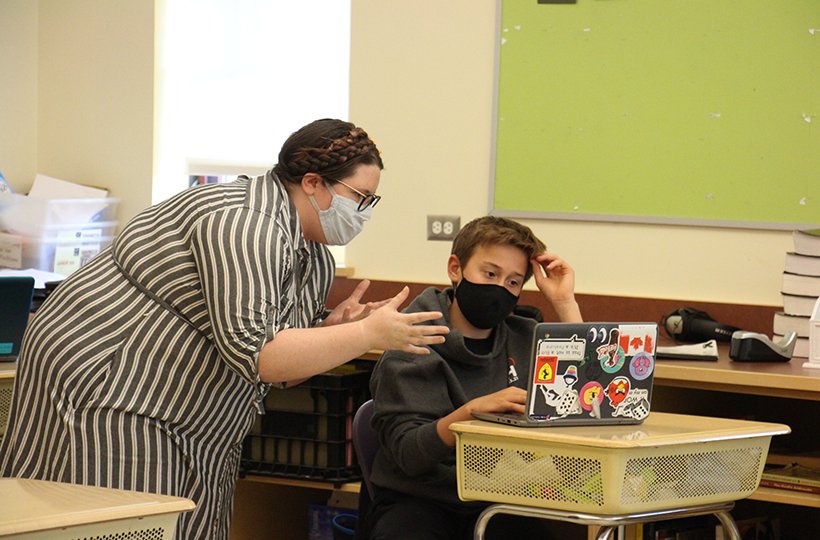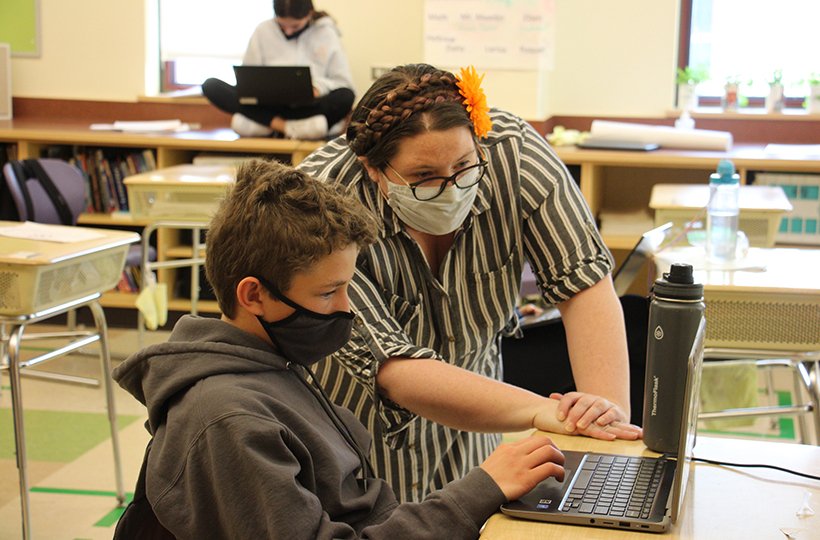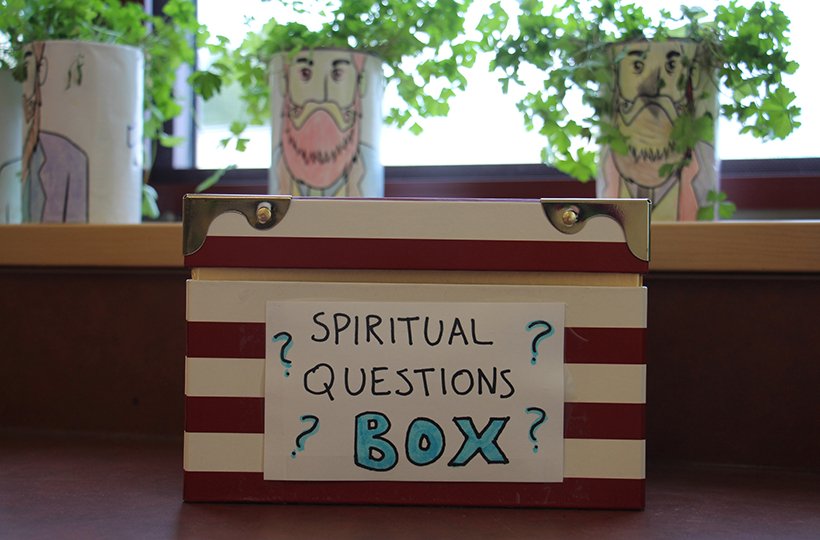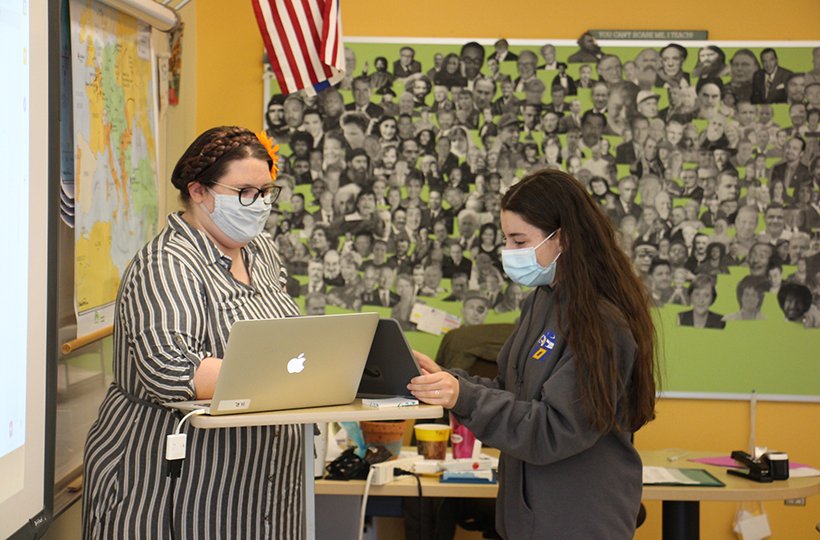When did you start at Rashi?
I started at Rashi this past fall, but I student-taught here two years ago, 7th and 8th grade with Sharon Clevenger.
Tell me about your background
I did my undergrad at Wellesley, I studied astronomy and history, I have a Masters of Divinity from Vanderbilt. I spent three years at Pardes, then came to Rashi!
I’m a Jew-by-choice. On the anniversary of my conversion, I stood in front of my class and said ‘all of you have been Jewish longer than me–tell me why you’re proud to be Jewish.’ Seeing them see themselves as givers of Jewish knowledge, versus recipients of Jewish knowledge was one of my favorite moments.
Seeing them see themselves as givers of Jewish knowledge, versus recipients of Jewish knowledge was one of my favorite moments.

Why Jewish studies?
I like teaching Jewish studies because it gives me the flexibility to teach these kids how to be a Jew. I’m not limited, I love that my class has the freedom to delve into current events, other subject areas where there’s a connection to Jewish studies, to create a more holistic education for these kids, I can pull in science and math into Jewish studies! I brought in algebra.
Having that flexibility to do that is really cool. I get to see a side of the students that’s harder for others to see. It’s such a journey they’re on.
Also Jewish studies is super cool.

One of the mitzvot we study in Grade 6 and 7 is damages: if you steal someone’s cow, you have to return the cow, and give back an additional 1/5 of the amount of the cow. So I have the student read the mitzvah in the Torah and put it in an equation format. They trace the mitzvah from the Torah through rabbinic literature, through to modern case law. In 7th grade!
What do you find most rewarding about your job?
I love it when kids are able to have those ‘aha’ moments. I love it when I can show the complexity and intellectual curiosity in Jewish studies and Judaic texts, seeing kids wrestle with it is always fun. For example, they were studying a sugya (portion of text) in the gemara (part of the Talmud), in chevrota, (pairs), arguing about rabbinic opinions, seeing them embrace the process was wonderful.
Describe your approach to teaching
I make a point in all of my classes that I’m not there to teach the kids how to be a Jew. I’m not there to teach the kids what they should do.
I’m there to show to them what Judaism is, and different approaches to looking at Jewish texts, and having them be able to make informed choices of who they want to be as a Jew and how they want to grow into their Jewish identity. It’s almost like a conversation.

What’s a special unit you teach?
All of them! I’m really excited about a unit I’m teaching in 6th grade. It’s integrated with all the subjects. It’s focused on the theme of Failing Forward: How does failure create opportunity? We are looking at texts in Bamidbar, Numbers, looking at failed leadership opportunities in that book: Miriam has a bad day and makes some bad mistakes! Aaron makes bad mistakes! Great and mighty Moses makes mistakes! And they all grow from that. I have the kids look at those stories, even in the midst of those, they can move forward and learn from it. I think it’s an important lesson for 6th graders as well!

What ‘soft skill’ do you help your students to develop?
In my mind, it can all overlap. A kid learning how to be kind, how to empathic, it’s all in the text. They’re learning text-to-real-world connections.
In my mind, it can all overlap. A kid learning how to be kind, how to empathic, it’s all in the text.
One of the biggest things that I hope to instill in my students is not only is it ok, but how crucial is it in Judaism to ask questions: of themselves of others, of the stories they’re told. To learn from others.

